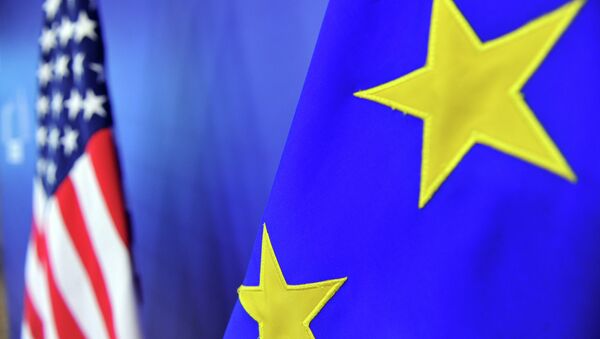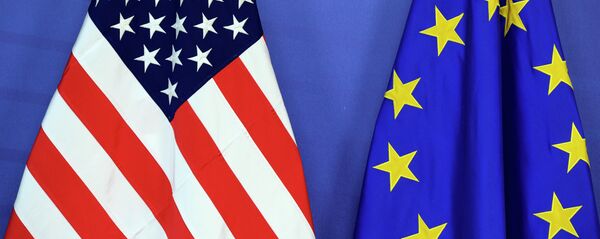According to the Secretary-General of the European Commission Martin Selmayr the discussions will focus on the implementation of the July 2018 joint statement and the EU-US cooperation on WTO reform.
Radio Sputnik discussed the US trade policy with Joel Trachtman, a professor of international law at The Fletcher School of Law and Diplomacy at Tufts University, Medford, Massachusetts, U.S.
Sputnik: In your view, how much progress with regard to these particular talks can we expect?
Joel Trachtman: The talks are motivated largely by the threat by the United States to impose purported national security-based tariffs on automobiles and auto parts. The European Union and the United States under the Obama administration were discussing a Transatlantic Trade and Investment Partnership (TTIP) which would have been more comprehensive. The agreement that’s being discussed now is less comprehensive and less comprehensive especially in one very important way and that is that the European Union wishes to exclude coverage of agricultural products and the United States demands that they be included.
READ MORE: BMW May Axe Mini Crowley Plant over Looming No-Deal Brexit, Risking 4,500 Jobs
The original TTIP that President Trump suspended negotiations for would have included industrial and agricultural products, and services, and procurement and a number of other things. So I think that the European Union strategy at this moment is one of strategic patience, where they are trying to negotiate, trying to avoid the imposition of these punishing auto tariffs, which… We don’t know precisely if the president has the power to impose those because we don’t know what the report that he has received from the Commerce Department says. But I think it is a good assumption that he has that power and he is presumably prepared to impose those auto tariffs as punishment for failure to proceed with these negotiations. So, but the European Union manages to appear to be proceeding with these negotiations as long as possible. And hopefully from their standpoint […] that the Trump administration.
Sputnik: The European Commission has asked member-states to approve negotiating mandates so the formal talks could start as you have alluded to that and then the move is seen Germany is keenly to start while France is showing reluctance. I suppose the question is why is that?
Joel Trachtman: You know, the European Union was founded on a bargain between France and Germany about agricultural protection as and France is concerned. Emmanuel Macron said in February that France can’t compromise or the European Union shouldn’t compromise but he [said that about] France, its environmental health or social standards. So, he is putting it in terms of those types of standards but he is also concerned about United States competition. United States agricultural production is very efficient and would provide quite a bit of competition especially the French producers. And as he said the Germans are more focused on industrial goods and especially worried about market access in the United States for autos and auto parts. And so they want to placate the United States as long as possible, including perhaps giving up agriculture, which hurts Germany far less than it would hurt France. So I think that’s why they have different positions and you know, France is going slow on these negotiations as you have said.
Sputnik: If France and Germany can’t agree on a negotiating position in this matter, what consequences can this have on the talks in general? Certainly, it is going to cause more malaise, isn’t it?
Joel Trachtman: It is not a 100 per cent clear that France will have a formal veto over the free trade agreement because this free trade agreement probably, the way it is formulated now, will only include matters for which the European Union has competency, not] areas where the member states have competency. So, my assumption is that France doesn’t have a formal veto but it has, of course, great political power. And everyone recognises that Macron is under a great deal of political pressure and his farmers have already been embracing strenuously issues about their subsidies and protection.
The views and opinions expressed in this article are those of the author and do not necessarily reflect those of Sputnik.




